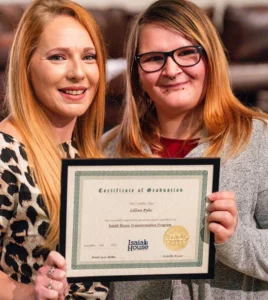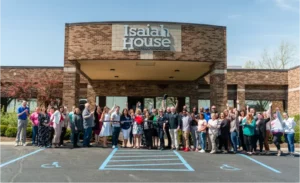A struggle with addiction can change a lot about a person. People who regularly abuse drugs or alcohol often display traits of selfishness, isolation, and chaos. That’s why volunteering is so beneficial for people in addiction recovery. It counteracts many of the negative habits and characteristics that people develop when they are in active addiction.
It has been said that “volunteering is the opposite of active addiction.” The service and selflessness involved with volunteer work offer many benefits to people who are battling addiction. In this article, we’ll explore some of the benefits of volunteering for people in recovery.
Volunteering helps form social connections
Volunteering provides an excellent opportunity for people in addiction recovery to form social connections. It allows them to meet new people and build relationships with both the people they are serving and the people they are serving alongside. Working toward a common goal with others helps build long-lasting connections
These relationships are valuable because having a strong support system is a key ingredient of a successful recovery from addiction. These social connections can provide encouragement and support during difficult times. Additionally, being part of a supportive community can increase the likelihood of long-term success in recovery.
Humans are social creatures. When we surround ourselves with positive influences, it encourages us to display those same positive behaviors to fit in. Peer pressure can be a good thing sometimes!
Volunteering helps provide structure
The life of an addict lacks structure. People with active addiction don’t usually keep very tight schedules. That’s why one of the key aspects of residential addiction treatment is that it provides patients with structure.
Consistent volunteer work creates monthly or weekly appointments on a person’s calendar. Filling up a calendar in this way helps provide people in recovery with the structure that they desperately need. Additionally, volunteering helps people learn how to responsibly manage their time.
Volunteering helps improve self-esteem
When people feel good about themselves, they are less likely to relapse. Volunteer work allows people in recovery to feel good about themselves by helping them accomplish something positive in the world. Seeing the results of their hard work is an excellent way to boost self-esteem.
Volunteering improves mental health
People struggling with substance use disorder often have a co-occurring mental health disorder. Addressing those mental health issues can be a key part of the recovery process, and volunteering helps to do just that. Serving others is significantly associated with better mental health.
Whether the patient suffers from anxiety, depression, or another mental health issue, volunteering can help them make great strides toward a better mental state. Serving others forces these people to concentrate on something other than themselves and their problems. This shift in focus can work wonders for a person’s mental well-being.
Teaches new skills and provides unique experiences
People in recovery can learn new skills and gain valuable experiences through volunteer work. For example, a person in recovery might volunteer at an animal shelter or soup kitchen. This type of work teaches them empathy and compassion for others. On top of that, practical skills like caring for animals or working in a kitchen are valuable both inside and outside of the workforce.
Speaking of practical skills for the workforce, Isaiah House offers job skills training to clients in our recovery program. The soft skills learned in this program help equip our clients to be the best employees possible.
Another benefit of volunteering is that it gives people access to unique opportunities they wouldn’t have had otherwise. They can find themselves building homes with Habitat for Humanity or helping out at a soup kitchen. These experiences can help open doors that may not have been available before.
Gives a sense of purpose
The life of an addict can feel aimless and purposeless. Addiction takes away your autonomy and your future. Volunteering helps put the reins back in a person’s hands. It gives them something to strive for every day, whether that be helping out at an animal shelter or delivering meals to homebound seniors.
Having this sense of purpose is essential for long-term recovery. People need something to look forward to each day, and volunteering provides just that. Knowing they are making a difference in the world helps motivate people to stick with their sobriety over time.
Mahatma Gandhi once said, “the best way to find yourself is to lose yourself in the service of others.” Volunteering offers those in addiction recovery a chance to do just that.
Helps others
Finally, perhaps the biggest benefit of volunteering in addiction recovery is that it helps others. No matter what benefits there are for the person struggling with addiction, they can be sure that their service is benefiting those around them.
Addiction recovery at Isaiah House
At Isaiah House, we’ve helped thousands of men and women break free from the grip of addiction. If you or a loved one is struggling with addiction, contact us today! We’d love to walk with you through every step of your recovery journey.
If you’d like to get involved, we also have opportunities to volunteer to serve those who are currently in recovery.




